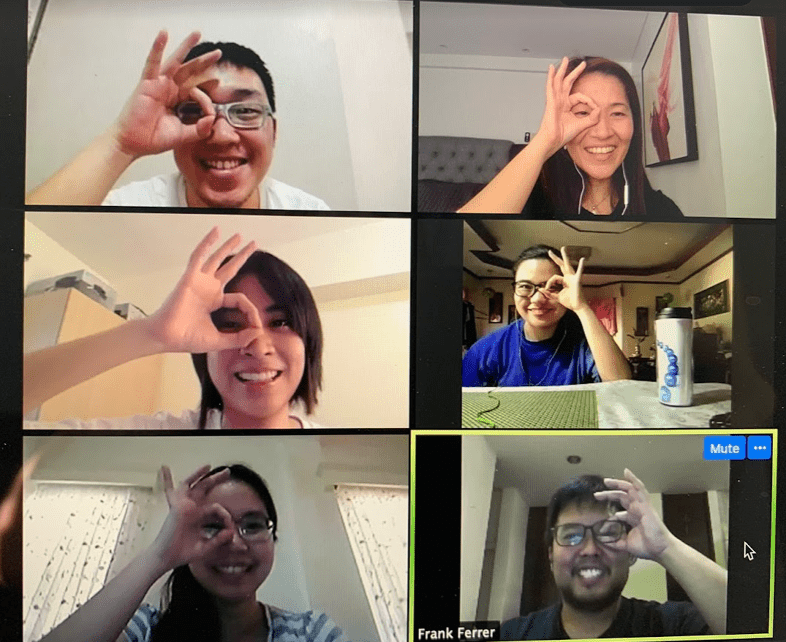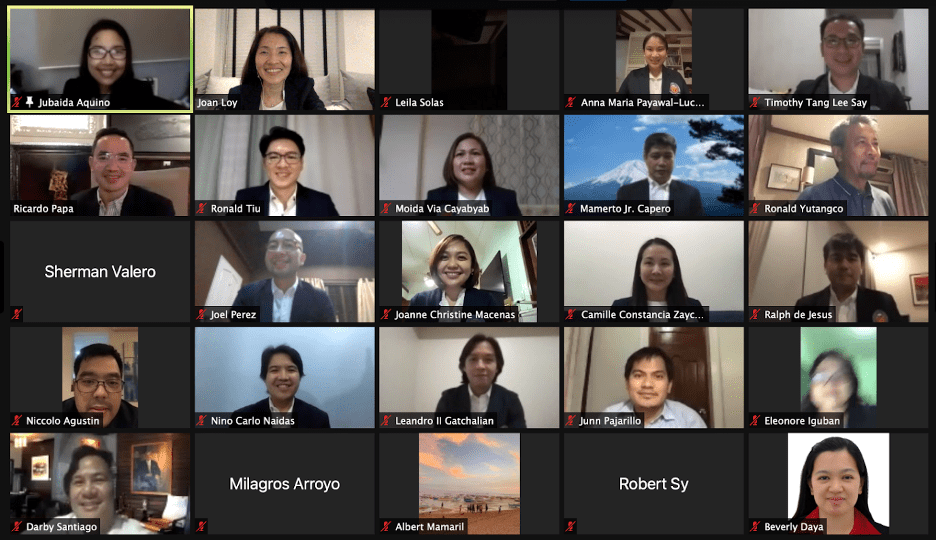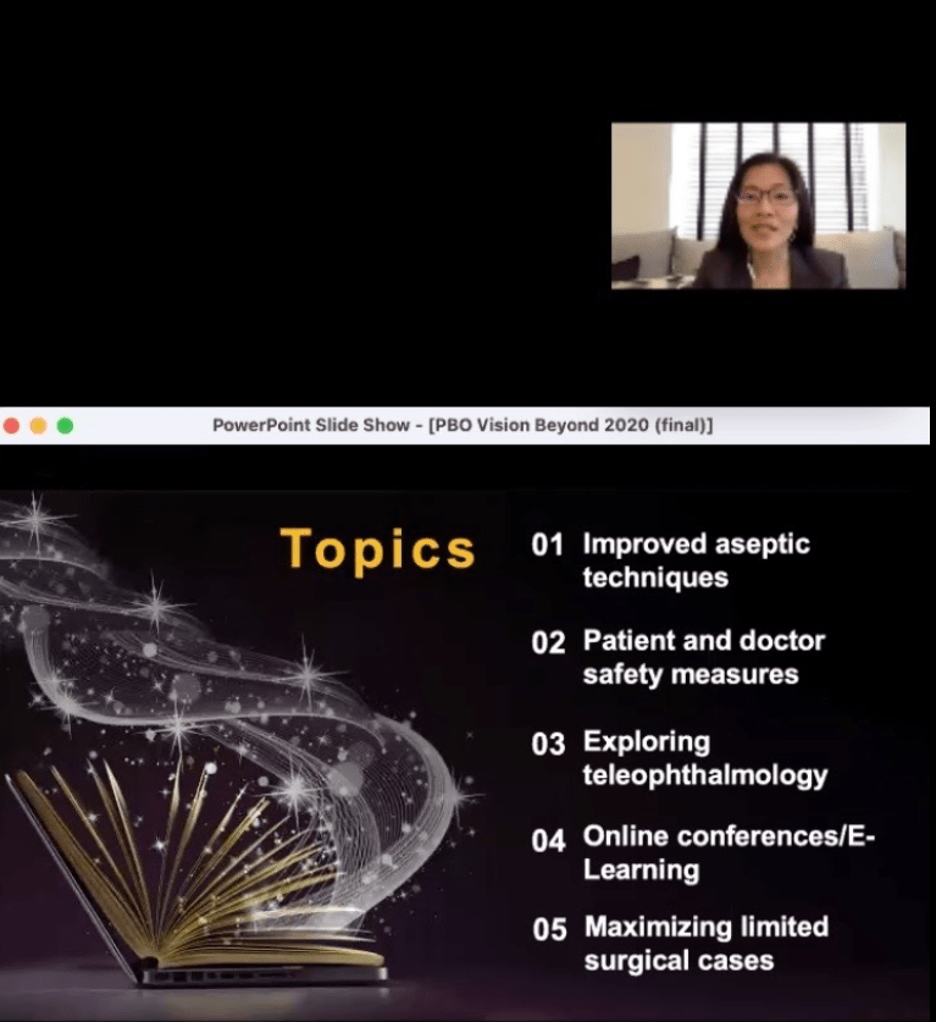e-Learning for Ophthalmology Residents
The Covid Pandemic has affected all aspects of our lives including education and training. One of the silver linings of this pandemic is that video-conferencing platforms were forced to upgrade, enhance, and update their technology, thereby making e-learning less frustrating and more enjoyable.
We interviewed Dr. Marie Joan Loy, the Residency Training Officer of St. Luke’s Medical Center, to share with us her experience and some tips on how to take full advantage of e-learning activities.

Dr. Marie Joan Loy is the Assistant Head and Ophthalmology Residency Training Officer of St. Luke’s Medical Center – Eye Institute. She is also the President of Vitreo-Retina Society of the Philippines. In her free time, she is an underwater photography and diving enthusiast.




















